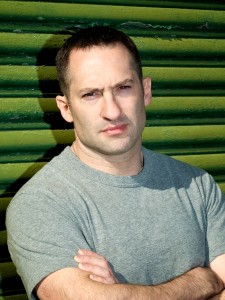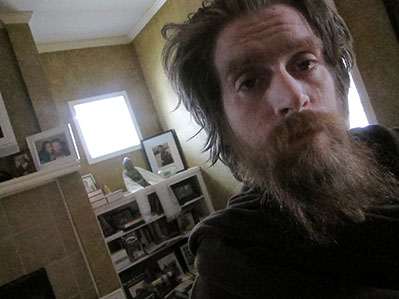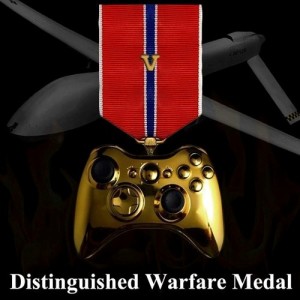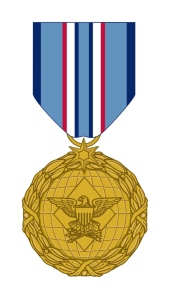By Mary J. Loftus
“An atmosphere of trust . . . where guile is minimized, if not eliminated, is a requirement for excellence internal to the warfighting unit.” —Ted Westhusing, Journal of Military Ethics
Already a lieutenant colonel in the army when he came to Emory, Ted Westhusing 03PhD used to jog around campus with his backpack filled with bricks so he wouldn’t “get soft.” An honor graduate of West Point, he was fluent in Russian and classical Greek, and was working toward a doctorate of philosophy with an emphasis on military ethics.
“There are so many good stories about Teddy,” says his thesis adviser, Professor of Philosophy Nicholas Fotion. “Most people, it takes them two years to write their dissertation. It took him from September to April. He was such a dedicated, well-organized guy. He would say—he used military lingo, even to describe his academic work—that he was on a mission.”
Westhusing set and pursued goals with a hard-driving dedication, apparent even at a young age. One of seven children, he was born in Dallas on November 17, 1960, and grew up in Tulsa, where he was starting point guard on his high school’s basketball team, often going to school early to practice his jump shot. As a National Merit Scholar, Westhusing had his choice of colleges, and decided on the United States Military Academy at West Point.
A devout Catholic, he thrived in an environment that emphasized integrity, virtue, and self-discipline. He served on the Cadet Honor Committee as senior honor captain, enforcing the code that a cadet “will not lie, cheat, steal, or tolerate those who do,” and graduated third in his class in 1983. Westhusing’s father had served in the navy, and his grandfather in the army during World War II; he had his mind set on following them into military service.
After graduation, he became a platoon leader, received Special Forces training, and was stationed in Italy, South Korea, and Honduras. He met his wife, Michelle, through a mutual friend while he was overseas, and they wrote letters back and forth for three and a half years, sweetly courting during his furloughs.
“My friends tease me that the first time we met, it was like something out of Romeo and Juliet,” Michelle says. “I was in my apartment in Memphis, and he came walking up to my balcony, this jarhead guy with no hair and flowers. He had this smile, and I hugged him and said, It’s so nice to finally meet you. We went to the barbecue festival down at the river, and lunch turned into dinner, and then he was going to Honduras for six months. But he wrote really good letters. He was so different than anyone I had ever dated, and so genuine.”
Westhusing returned to the states and became division operations officer for the Eighty-Second Airborne based at Fort Bragg, North Carolina. He and Michelle married in 1988.
He enjoyed the camaraderie of military service, but missed the intellectual rigor of a university. In 2000, he enrolled in Emory’s graduate school, moving with Michelle and their three young children—ten-year-old Sarah, five-year-old Aaron, and one-year-old Anthony—to Atlanta.
“Emory was the only school with the emphasis on military ethics and the ancients that Ted was looking for,” Michelle says. “He took it and applied it to his daily life by the code of honor he learned at West Point.”
“Competition and cooperation are often in conflict . . . and the bridge between the two is honor.” —Ted Westhusing’s doctoral dissertation
Westhusing’s dissertation was titled, “The Competitive and Cooperative Aretai within the American Warfighting Ethos,” with aretai, from the Greek, meaning virtues or excellences.
“Born to be a warrior, I desire these answers not just for philosophical reasons, but for self-knowledge,” he wrote in the opening to the 352-page exploration of military honor.
A student at Emory at the time, Jeff Jackson 04C, remembers asking Westhusing for advice about joining the military after taking a class the lieutenant colonel cotaught. Jackson went on to serve in Afghanistan with the Army Reserves. Westhusing, he says, was “a very upbeat guy, a rarity among philosophy types.”
After completing his doctorate, Westhusing returned to West Point to teach English and philosophy, and Michelle and the children settled into life on the scenic, historic campus, which runs along the Hudson River in New York. He was offered a lifetime assignment as a professor and seemed to enjoy the role of preparing young officers-in-training.
“I will never forget the lessons [Westhusing] taught me. As a cadet in his philosophy class, he forged an understanding of right and wrong—the harder right, over the easier wrong,” wrote Carlos Keith, a 1996 graduate of West Point, on an alumni website.
But Westhusing found it hard to be in a classroom when the country he loved was a year into a conflict that he strongly supported, considering the Iraq War a “just war” in the ancient, Augustinian sense of the term—a war that occurs for a good and just purpose rather than for self-gain or power, waged by a proper authority, using no more force than necessary, with peace as the ultimate goal.
Serving in Iraq, Westhusing told friends, would help him be a better professor to cadets who might be facing service there or in Afghanistan.
The person most difficult to convince, however, was Michelle. “It was one of the biggest arguments we ever had,” she says, when she discovered he had volunteered for duty in fall 2004. “We had three kids, he was a professor. I couldn’t understand it.”
“In the minds of friend and foe alike, our army is, without a doubt, the best-trained, best-equipped, best-led, and most intelligent of any in our nation’s history. Our soldiers are recognized as the world’s finest.” —Ted Westhusing, editorial in the Tulsa Tribune during Gulf War I.
But Westhusing wouldn’t be dissuaded. After a few weeks of training at Fort Benning, at age forty-four, he was on his way to Baghdad to help train Iraqi forces to take charge of their own security. As head of counterterrorism and special operations for the Multinational Security Transition Command, he worked in partnership with a private US security company contracted to train an elite group of Iraqi police in special operations.
Westhusing reported to Major General Joseph Fil and Lieutenant General David Petraeus, a fellow West Point graduate who was then in charge of operations in northern Iraq. Petraeus was widely known for his ability to inspire his troops and gain the trust of the Iraqis; helping to rebuild Iraq and train their own forces was an important part of his strategy. Millions of dollars from the US, much of it in cash, were being used to stimulate the local economy, support public works, and pay private contractors.
At first, Westhusing’s correspondence indicated he was excited to be in Iraq, and his commanders commended his performance; Petraeus soon promoted him to full colonel.
But within a few months, the situation, and Westhusing’s state of mind, had started to deteriorate. In May, Westhusing received an anonymous letter claiming that there was rampant fraud, waste, and abuse of power in the private company he oversaw.
“Their only goal is to make as much money as they can, doing as little work as possible,” read the letter, now publicly available under the Freedom of Information Act.
Westhusing sent the allegations to Fil, saying he had reviewed the alleged discrepancies and found that the company was complying with its contractual obligations, and that “the evidence suggests that these allegations are untrue.”
But his emails home were filled with disillusionment—about contractors, the money changing hands, and infighting among the Iraqis they were training. He began to lose sleep, grew physically ill, and told Michelle that he thought he might have to resign his position.
“Trust was very important to Ted. And in the last conversation I had with him, he said he was having trouble trusting anyone,” she says. “He couldn’t trust the Iraqi police force, the contractors, even his commanders. He was in a place far away from home, by himself, and he felt very isolated. He felt like he had lost control over the whole, hopeless situation.”
“Death before being dishonored anymore.” —from a note found beside Ted Westhusing’s body
On June 5, 2005, Ted Westhusing was found dead in a trailer at Camp Dublin in Baghdad, his service pistol on his bed along with a letter indicating that he had taken his own life. “I cannot support a msn [mission] that leads to corruption, human rights abuse, and liars. I am sullied—no more,” it read in part. “I didn’t volunteer to support corrupt, money grubbing contractors, nor work for commanders only interested in themselves. I came to serve honorably and feel dishonored. . . . Death before being dishonored anymore.”
The letter, says Michelle, was in her husband’s handwriting. An official inquiry declared his death a suicide. Westhusing was the highest-ranking military official to have died in Iraq at the time, and the story received widespread media coverage, especially after documents and interviews associated with the investigation were released under the Freedom of Information Act.
But many unanswered questions remain for Michelle, who now lives a quiet suburban life with her eleven- and fifteen-year-old sons (her daughter is away at college).
“Ted very much believed in honor and doing the right thing. I think he was told not to worry about things, to sweep them under the carpet and go home,” says Michelle. “But Ted couldn’t do that. He wasn’t just a professor of ethics, he didn’t just teach it, he believed it with all his heart.”
Fotion also had stayed in contact with Westhusing. “I had no clue that this was going to happen,” he says. “The last email I got from him was a week before he died. He said he’d be going home in a month or so. He hid it from me, but I gather his emails to his family were more honest.”
His former student had a strong sense of morality, says Fotion, that could have been challenged when “things ended up seeming so dirty to him there,” he says. “Ethics can be a brittle shell, and when that broke . . . well, I want to believe it was not a suicide. It breaks my heart for his kids and his wife.”
Veteran Dan Cantey is a graduate student in Emory’s Department of Religion who, while he never knew Westhusing, also served in Iraq and shares an interest in the classics and the ancient notion of just war. “You know, Book Nine of The Iliad is about Achilles—his friends go to him and say, we need you to come back and fight, and he gives a long speech asking basically, am I going to go back and seek the glory of war or go home?”
For his part, “I had no expectations about war being all glory, but I had very few qualms about going over there,” Cantey says. “The imbalance of power was between a tyrannical government and its people, and I’m glad we tried to put a stop to that.
“But I would also be naive to say that I was unstained by it,” he adds. “Going to war, in general, changes you in ways that you don’t understand.”
“Two fates bear me on to the day of death. / If I hold out here and I lay siege to Troy / My journey home is gone, but my glory never dies.” —Achilles, The Iliad, Book 9
Westhusing’s funeral service and burial at West Point were attended by generals Fil and Petraeus, who returned from Iraq for the ceremony, as well as several other generals of two stars or more. Looking back on it, Michelle would just as soon his commanding officers not have been present. “I feel like they let him down,” she says. “I feel as if no one was watching out for Ted’s welfare. He was trying to tell them something, and they ignored him. I can only imagine how that felt to him.”
Since the wars in Afghanistan and Iraq, suicide rates among American troops have risen steadily to the highest levels in nearly three decades. In 2004, the army reported that 67 soldiers on active duty committed suicide; in 2009, that number was 162. Officials say primary causes are longer deployments to war zones, depression, and stress.
The strength of Westhusing’s aretai, however, has been carried forth. A memorial at Emory, organized by Fotion, was held for Westhusing in September 2005 in the philosophy seminar room in Bowden Hall and was well attended. “Everyone told Teddy stories,” Fotion says, smiling at the memory. “I bound them up in a book and sent them to his wife.”
One of Westhusing’s West Point classmates, D. Richard Tucker, has written a one-act play about Westhusing’s death called Duty, Honor, Profit: One Man’s Struggle with the War in Iraq, which was performed in Seattle in 2008 during six weekends.
“I knew Ted briefly, I had one class with him,” says Tucker. “I mainly knew him by reputation. He was the star of the class. When I saw the news story on the Internet, I couldn’t believe it. It hit me hard. Two years later, when the FOI documents were released, I decided to write the play.”
“What made Ted unique among men is that he was exactly as he intended to be: ethical and moral beyond measure, forthright in all his dealings, always questioning.” —Tom Weikert, writing on West-Point.org, in remembrance of Ted Westhusing
Classmates and colleagues continue to pay homage to Westhusing on a memorial site at west-point.org.
Reads one: “At this, the fifth anniversary of his death, is appropriate to remember all that Ted was . . . for what made Ted unique among men is that he was exactly as he intended to be. Ethical and moral beyond measure, forthright in all his dealings, always questioning—Ted was the very conscience of our class.”
Another: “We all were very interested in Ted’s projects with the Trojan War and the Discovery Channel documentary, and he recommended that we read The Iliad and Odyssey and picked out what he thought were the best translations.”
And another: “I remember Ted best as captain of the honor committee. In many ways the Honor Code epitomizes West Point, and Ted certainly epitomized the Honor Code. I think if you had to tell someone what a West Pointer is supposed to be like, you couldn’t do much better than to start describing Ted.”
The remembrances continue: Westhusing effortlessly leading a rifle platoon, reading Kant, perfecting his Russian and Italian, rocking out to Bruce Springsteen.
But perhaps Westhusing’s most poignant living memorial, on this chilly fall evening just before Thanksgiving, is the gangly fifteen-year-old warming up before a basketball game in his high school gymnasium.
He’s laughing, joking with his teammates, rolling the basketball effortlessly between his hands and behind his back.
And when he catches the ball and goes up for a jump shot, it looks like he’s flying.
“Just like Ted,” says Michelle, watching her son play. “He looks just like Ted when he does that.”






